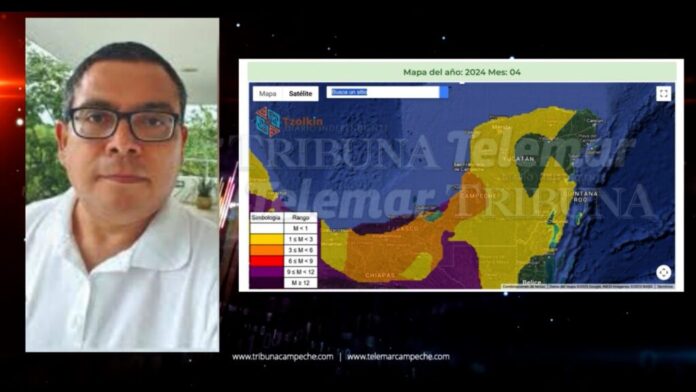Researchers are sounding the alarm about an invisible risk facing communities in Campeche, Chiapas, and Guatemala: groundwater shortages due to deforestation and drought. According to Yuri Peña Ramírez of El Colegio de la Frontera Sur (ECOSUR), the crisis is not just a matter of visible drought conditions but also the impact on underground water sources.
Pena Ramírez explained that much of Campeche’s water supply comes from underground rivers originating in the highlands of Chiapas and Guatemala, which are already experiencing drought in 2025. “If it rains less there, the water table level will decrease here,” he warned. This raises concerns about the long-term sustainability of groundwater resources in Campeche, particularly in municipalities such as Candelaria, Atasta, and Palizada.
Deforestation on the Yucatan Peninsula is exacerbating the problem. “Without trees, there are no clouds, and without clouds, there is no rain,” Pena Ramírez said. He emphasized that protecting forest cover is crucial to maintaining the water cycle, which relies on rainfall and tree transpiration to recharge groundwater aquifers.
Another associated risk is saline intrusion, a phenomenon where seawater advances inland as freshwater levels drop in groundwater wells. This can render wells up to 40 kilometers from the coast unusable, affecting both human consumption and agriculture.
Given these findings, Pena Ramírez made an urgent appeal to citizens and local governments to take action: “Avoid water waste, promote domestic recycling, and protect forest ecosystems.” He emphasized that protecting these ecosystems is crucial for ensuring access to clean water in the long term. Without immediate action, communities will face increasingly compromised water resources.
The researcher’s warnings come as drought conditions persist in Chiapas and Guatemala, further threatening the region’s groundwater supplies. Local residents are urged to take a proactive approach to conserving this vital resource before it is too late.
Source: Tribuna de Campeche




